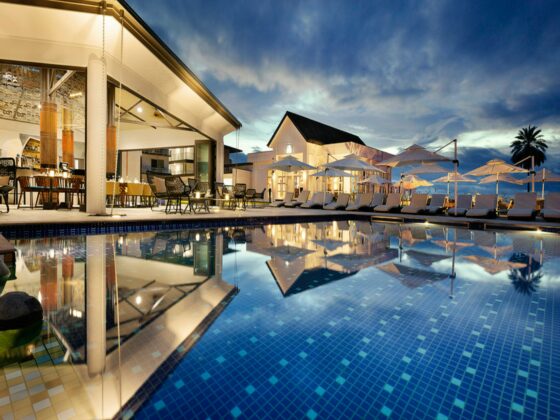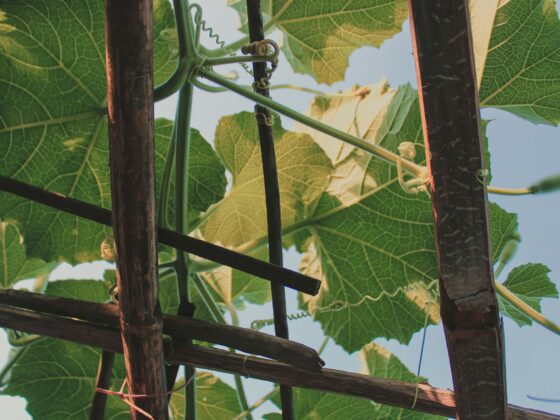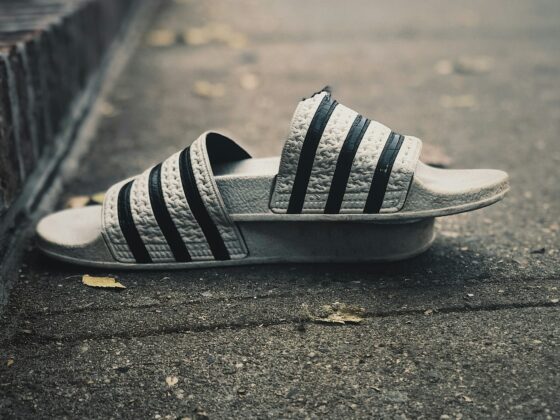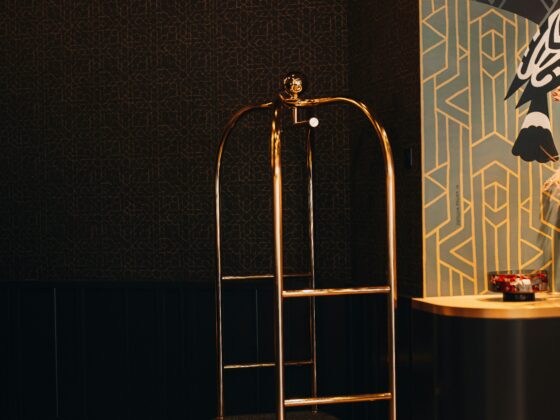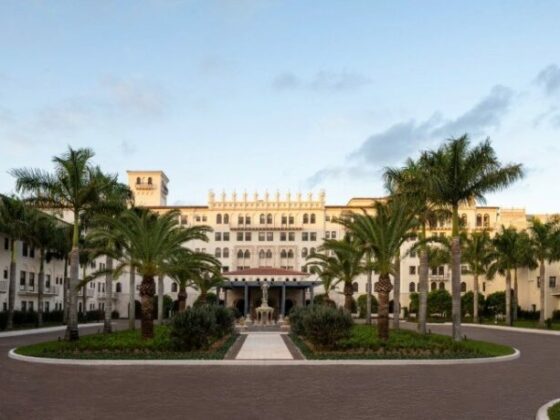Furniture made from melted aluminium and compressed wool features in this fine-dining restaurant in Budapest, Hungary, which architecture firm URBA designed to highlight sustainability and local identity.
URBA collaborated with artists Esteban de la Torre and Judit Eszter Kárpáti of art studio Ejtech and the owners of Onyx to develop an interior for the restaurant that merges art, science and sustainable gastronomy.
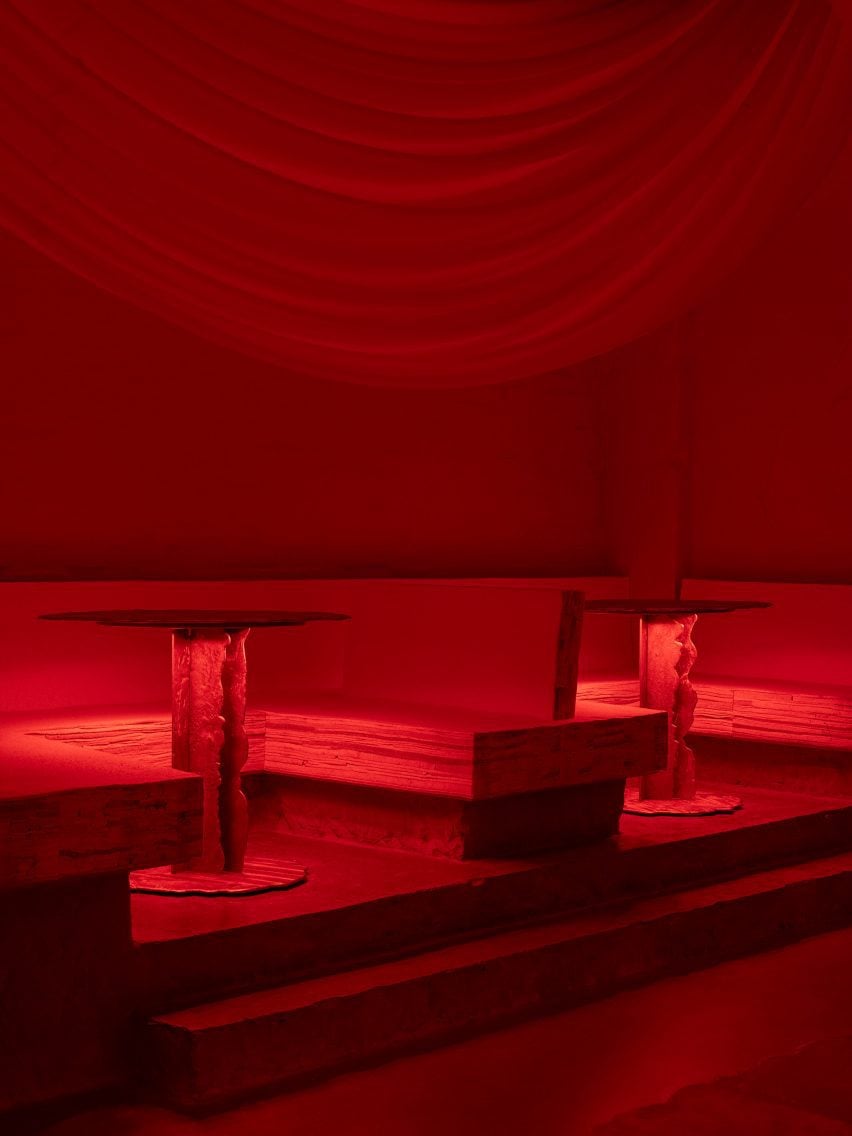
The project, which has made the shortlist for Dezeen Awards 2025 in the restaurant interior category, aims to complement the immersive hospitality concept by utilising motion, lighting and audio to create a multi-sensory experience.
Onyx Æther offers an 11-course menu that explores centuries of innovation, from the first established restaurant to the industrial revolution and a speculative future where humans have colonised the planet Mars.
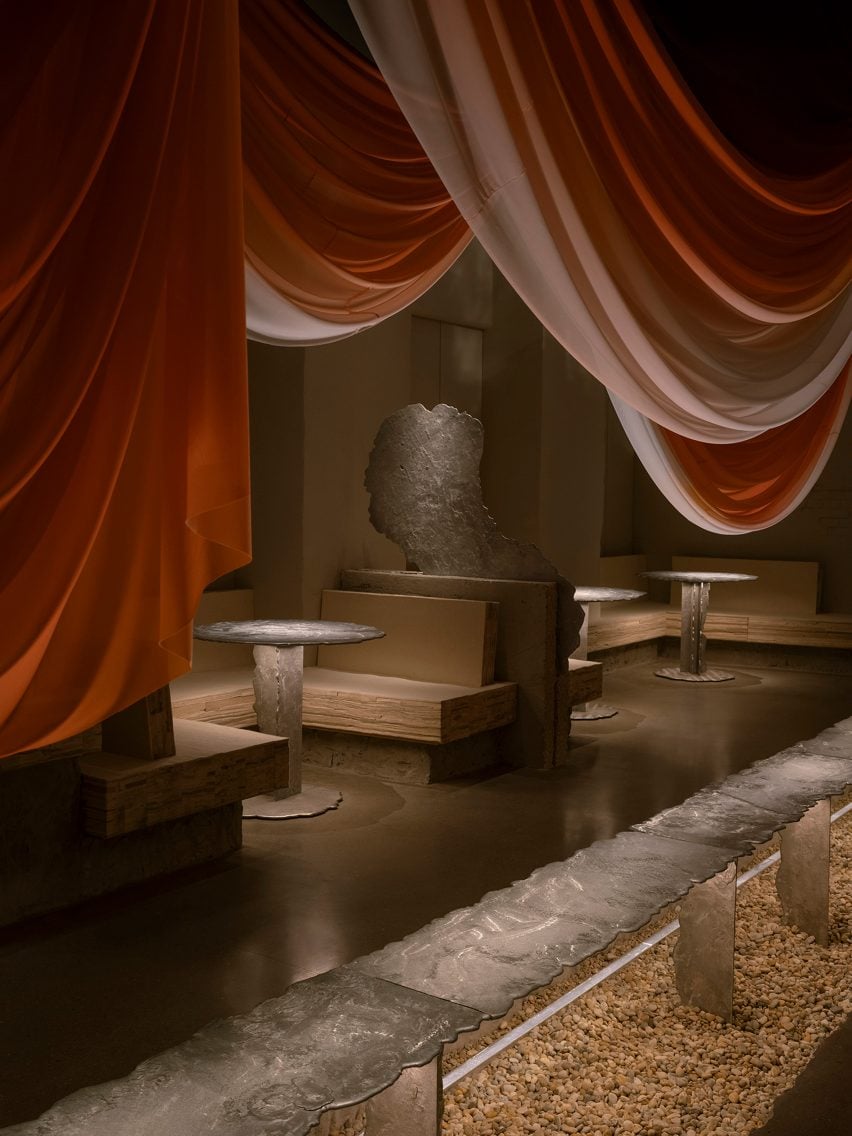
The restaurant’s owners wanted to create a dynamic, evolving space that acknowledges the past and celebrates the local culture and context, while supporting an experimental approach to hospitality.
“A timeless, multi-layered environment, poetically weaves together universal themes around transience and impermanence,” explained URBA.
“As the evening unfolds, the space morphs seamlessly, guiding guests on an immersive journey from plate to palate, engaging their senses and intuition in a continuous flow of experience.”
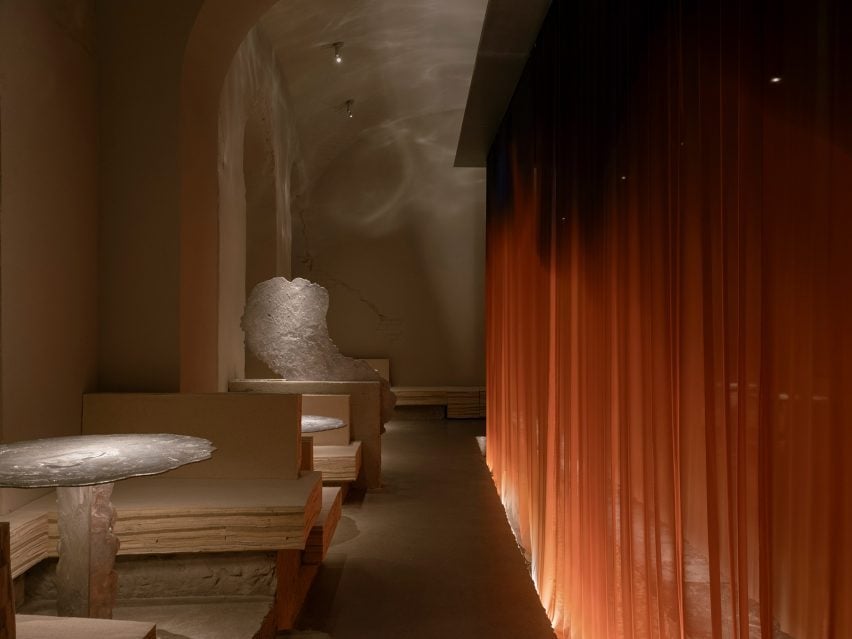
The interior’s raw, preserved walls aim to honour the building’s history and provide a backdrop for a sunken communal table where guests are guided through the meal.
The central table is complemented by a large-scale textile installation developed by Ejtech. The draped fabric is animated by a series of motors, allowing the room’s spatial configuration to be adjusted throughout the evening.
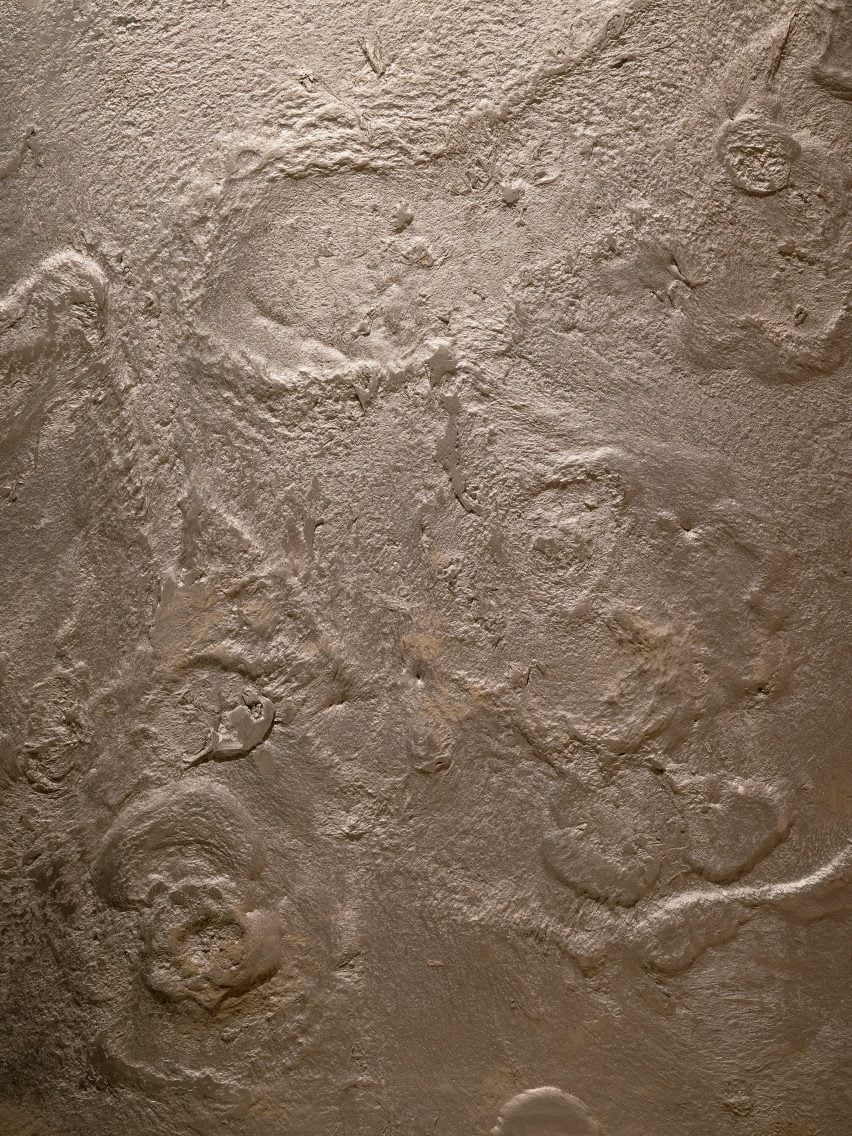
Onyx Æther’s strong focus on sustainability is reflected in the interior’s use of locally sourced, repurposed or waste materials, including surplus wool felt that was salvaged from a local mill.
The dense, machine-pressed wool is combined with a natural resin and layered to form a sofa system intended to evoke the stratification of the Earth’s crust over many millennia.
Other furniture items, including the irregularly shaped tables and partition screens, were made using melted-down aluminium construction waste that was cast without moulds to eliminate the need for industrial production processes.
“The organically textured blocks shimmer with imperfections, proudly showcasing their reclaimed origins and embodying a sense of movement and adaptability,” the designers explained.
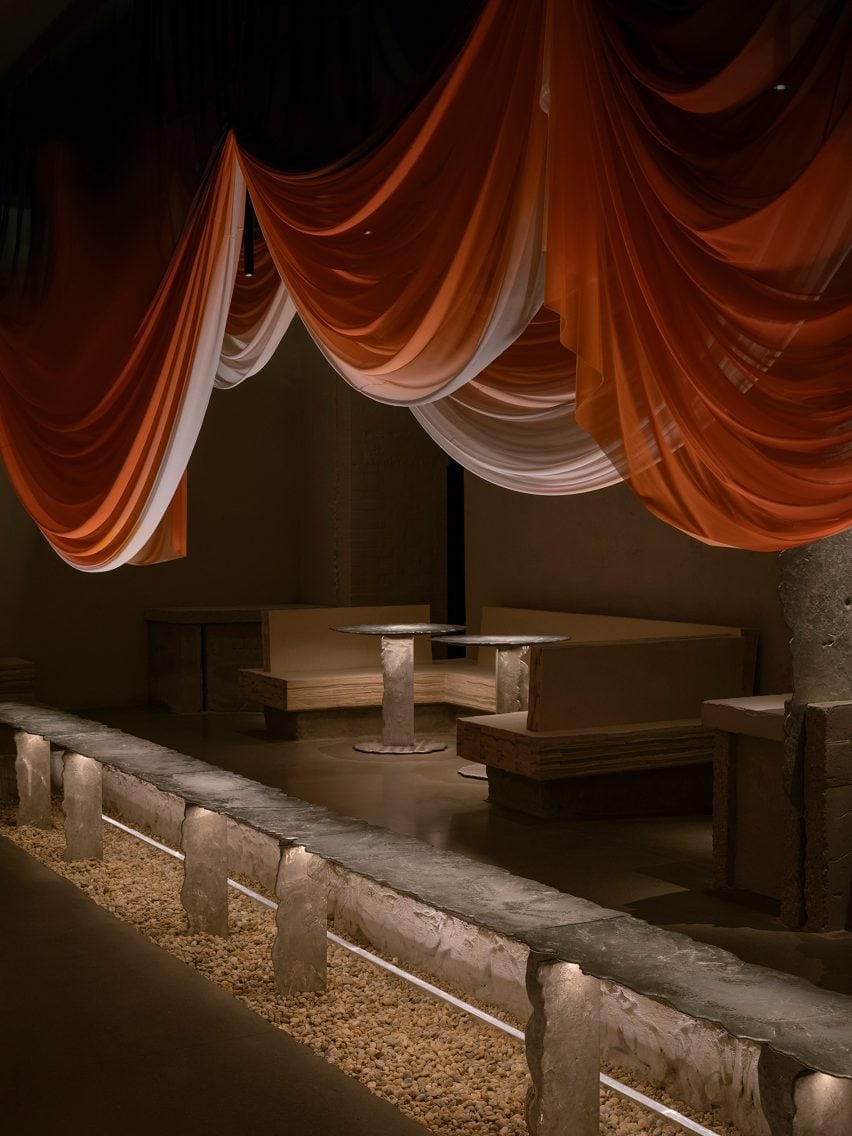
The project focused on minimising waste during construction and reducing the overall carbon footprint by utilising local materials.
The decision to preserve the walls and ceilings in their original state negated any unnecessary building work, while the inclusion of locally sourced pebbles eliminated the emissions associated with long-haul transport.
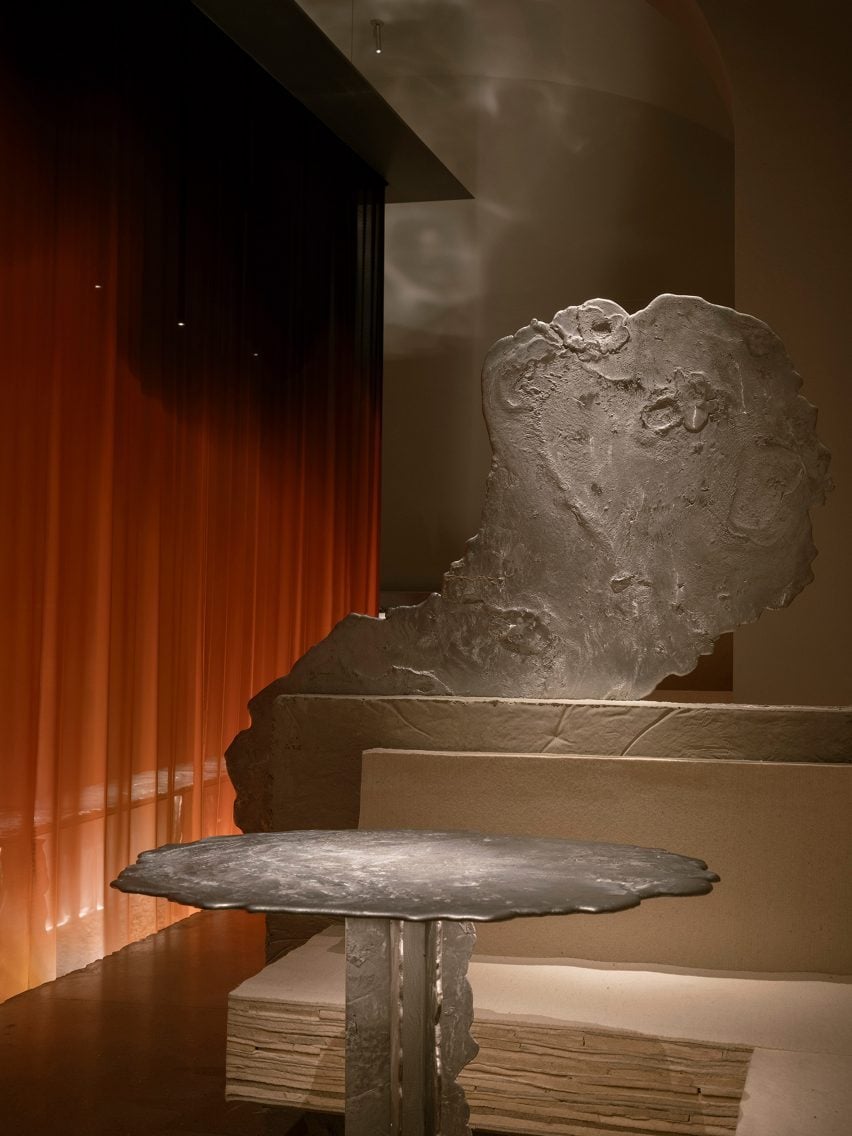
“From the rolling gravel reminiscent of the Danube’s banks to the deliberate use of Hungarian materials and techniques, the design roots itself in local identity while embracing a global vision of sustainability,” URBA pointed out.
“It invites guests not just to dine but to engage deeply with the space, making each visit personal, inventive and profoundly meaningful.”
URBA is an architecture and interior design studio with offices in Budapest and Vienna. It was shortlisted for Dezeen Awards 2022 in the emerging interior design studio category for its work across the residential, hospitality and service industries.
The photography is courtesy of URBA.




